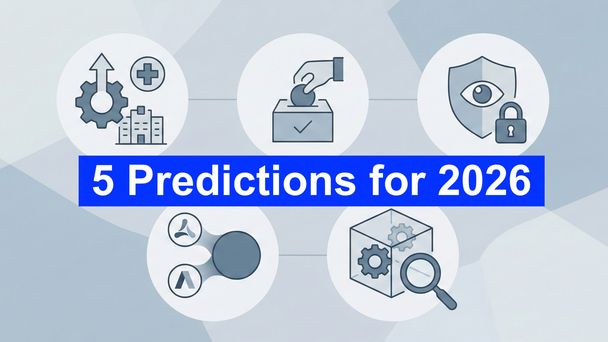3VC predictions for startups and (ad)ventures in 2023
In the coming months, VC-backed startups will need to steer through a curvy and treacherous road. The world has changed and the startup ecosystem has been impacted. Tech layoffs, recession fears, a slowing macro environment, and high inflation are here to stay. It’s time to buckle up, hold on to the steering wheel, and have a game plan ready. With this in mind, here are some key trends we expect to see in 2023:

1. Fundraising is changing - revenue, reasonable valuations, and due diligence are back again.
We will see two worlds, vastly different. While the majority of seed and Series A stage startups will experience valuations down by 30-50% and undergo lengthy due diligence processes, some exceptional teams will continue to raise at high valuations since there is still a lot of dry powder to be deployed. Growing 2x YoY sustainably will replace “> 3x YoY” from 2021. As startup runways decrease over time, many startups will have to think about their next fundraise or become break-even by then. We expect that fundraising activity will pick up again in H2 2023.
2. Sales cycles will double in time. Founders and sales teams: patience and resilience are must-have virtues to dust off.
In B2B there will be less spend in non-core business areas. Therefore the majority of POCs will be put on hold and become subject to evaluations, new budgets, and longer timelines. You’ll need to revamp your value proposition and sales playbooks and focus on pain killers, measurable impact on cost, or incremental revenue.
3. Solutions that cut overhead or increase revenue will get adopted quicker.
With scaled down departments, slimmed down tooling budgets, and boards paying closer attention to net burn than ever before, companies will carefully consider where to spend their precious money. Solutions that prove their immediate ROI either by generating savings or bringing new revenue have a greater competitive advantage.
4. Buying companies has become a lot cheaper.
Unlike 2021 and early 2022 where money was abundant, companies now face challenges convincing investors. Some companies have gotten into trouble by struggling to prove a product market fit or grow efficiently. Going forward there will be a lot of discounts, which represents an opportunity for cash rich companies. M&A may become a cheaper option instead of investing in building. Thus aggregator-like business models will get a strong tailwind.
5. AI everywhere - generative AI is nearing and surpassing some human benchmarks, while lowering cost and increasing value.
AI models are reinventing communication, content creation, and information access. We have witnessed the first examples of large language models (LLMs) with DALL-E 2 and GPT-3 being used in content generation (text, visual, audio, code, data, and more). LLMs have been increasing an average of 10x per year in size and sophistication, and 1% of online content today is already generated using AI. Going forward, we predict every product will have an embedded AI component. More and more content will be generated and repetitive tasks will be automated while other more specialized industries such as engineering, law, health, and education will get affected by AI too.
6. Cyber protection may be (sadly) deprioritised.
Cyber vulnerabilities and data breaches are here to stay. While security or privacy breaches often result in high costs and drastic reputational harm, we think that as these solutions don't represent an immediate ROI, their deployment will sadly be postponed or cut out from the tooling budget.
7. It's the best time to start new (ad)ventures.
If there’s one good thing that can come out of the recent tech layoffs, it’s that an abundance of talented people are now taking a fresh look at what they want to do next. Many will join other tech companies, but some will take on the challenge of building startups. With all of the experience they have, they’re well-positioned to become the next generation of founders who build what we’ll all be using and talking about during the next 5-10 years.
Curious if our predictions will hold true?
Check out our 2022 predictions and see how we did there!


